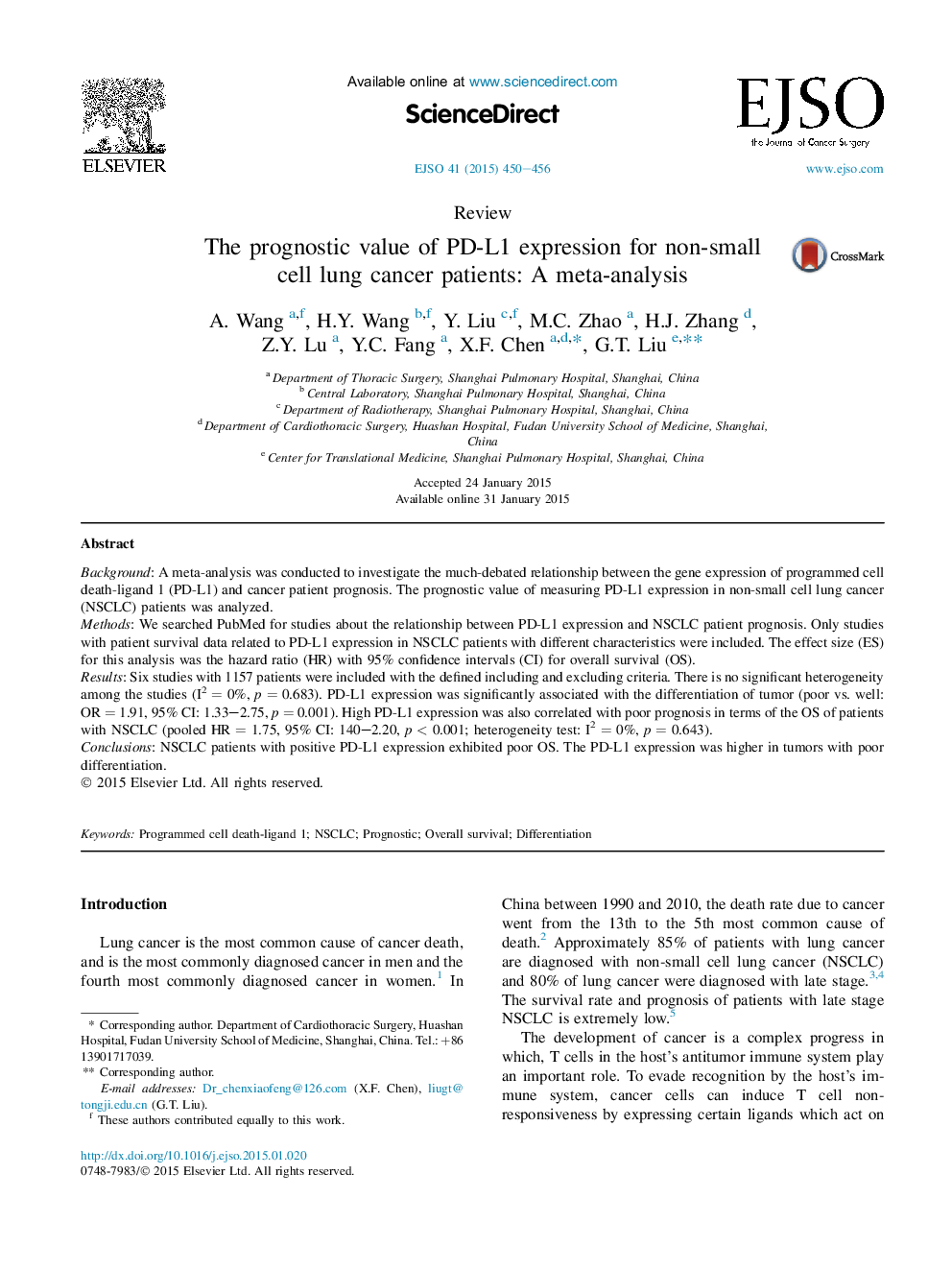| Article ID | Journal | Published Year | Pages | File Type |
|---|---|---|---|---|
| 6191589 | European Journal of Surgical Oncology (EJSO) | 2015 | 7 Pages |
BackgroundA meta-analysis was conducted to investigate the much-debated relationship between the gene expression of programmed cell death-ligand 1 (PD-L1) and cancer patient prognosis. The prognostic value of measuring PD-L1 expression in non-small cell lung cancer (NSCLC) patients was analyzed.MethodsWe searched PubMed for studies about the relationship between PD-L1 expression and NSCLC patient prognosis. Only studies with patient survival data related to PD-L1 expression in NSCLC patients with different characteristics were included. The effect size (ES) for this analysis was the hazard ratio (HR) with 95% confidence intervals (CI) for overall survival (OS).ResultsSix studies with 1157 patients were included with the defined including and excluding criteria. There is no significant heterogeneity among the studies (I2 = 0%, p = 0.683). PD-L1 expression was significantly associated with the differentiation of tumor (poor vs. well: OR = 1.91, 95% CI: 1.33-2.75, p = 0.001). High PD-L1 expression was also correlated with poor prognosis in terms of the OS of patients with NSCLC (pooled HR = 1.75, 95% CI: 140-2.20, p < 0.001; heterogeneity test: I2 = 0%, p = 0.643).ConclusionsNSCLC patients with positive PD-L1 expression exhibited poor OS. The PD-L1 expression was higher in tumors with poor differentiation.
